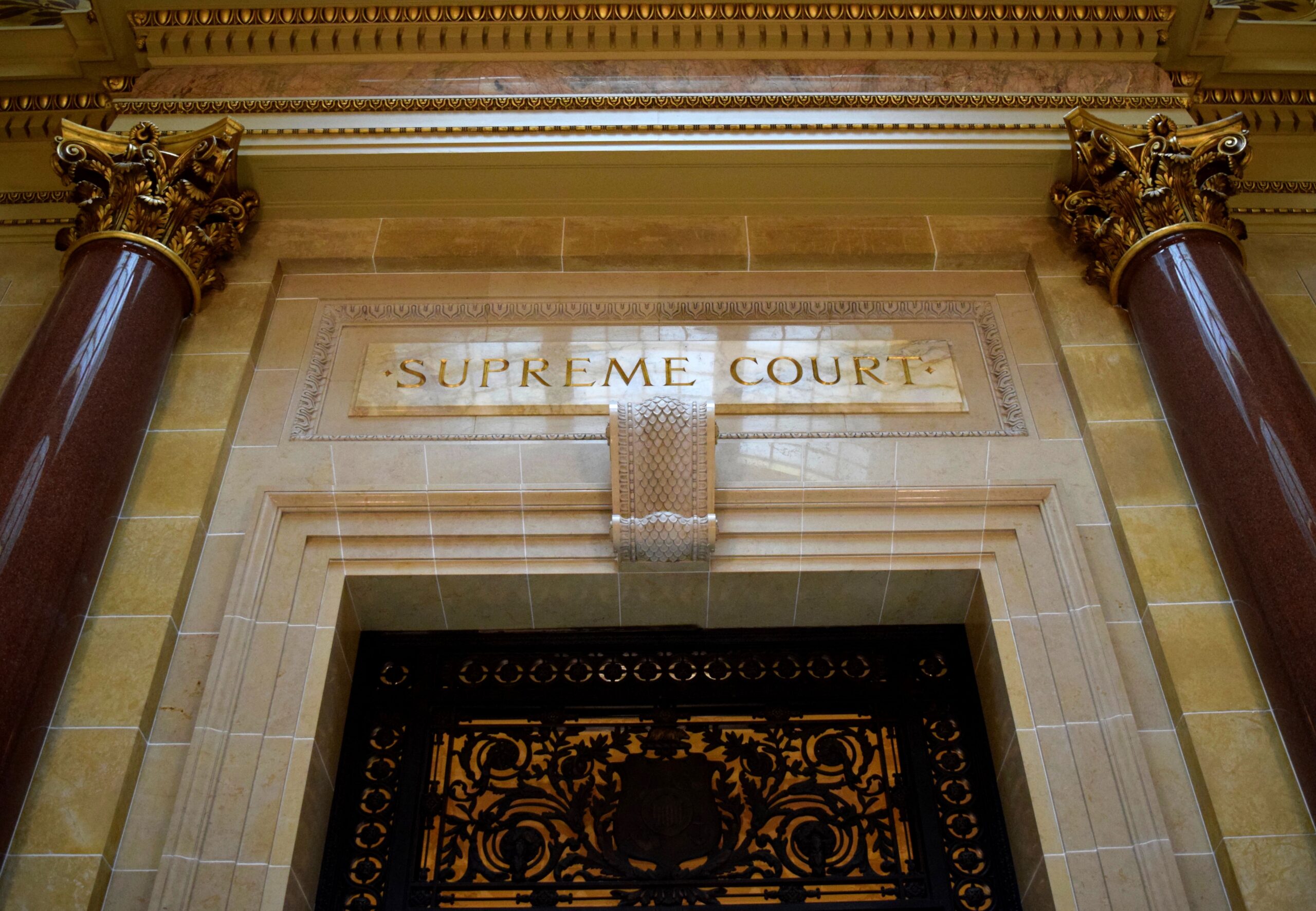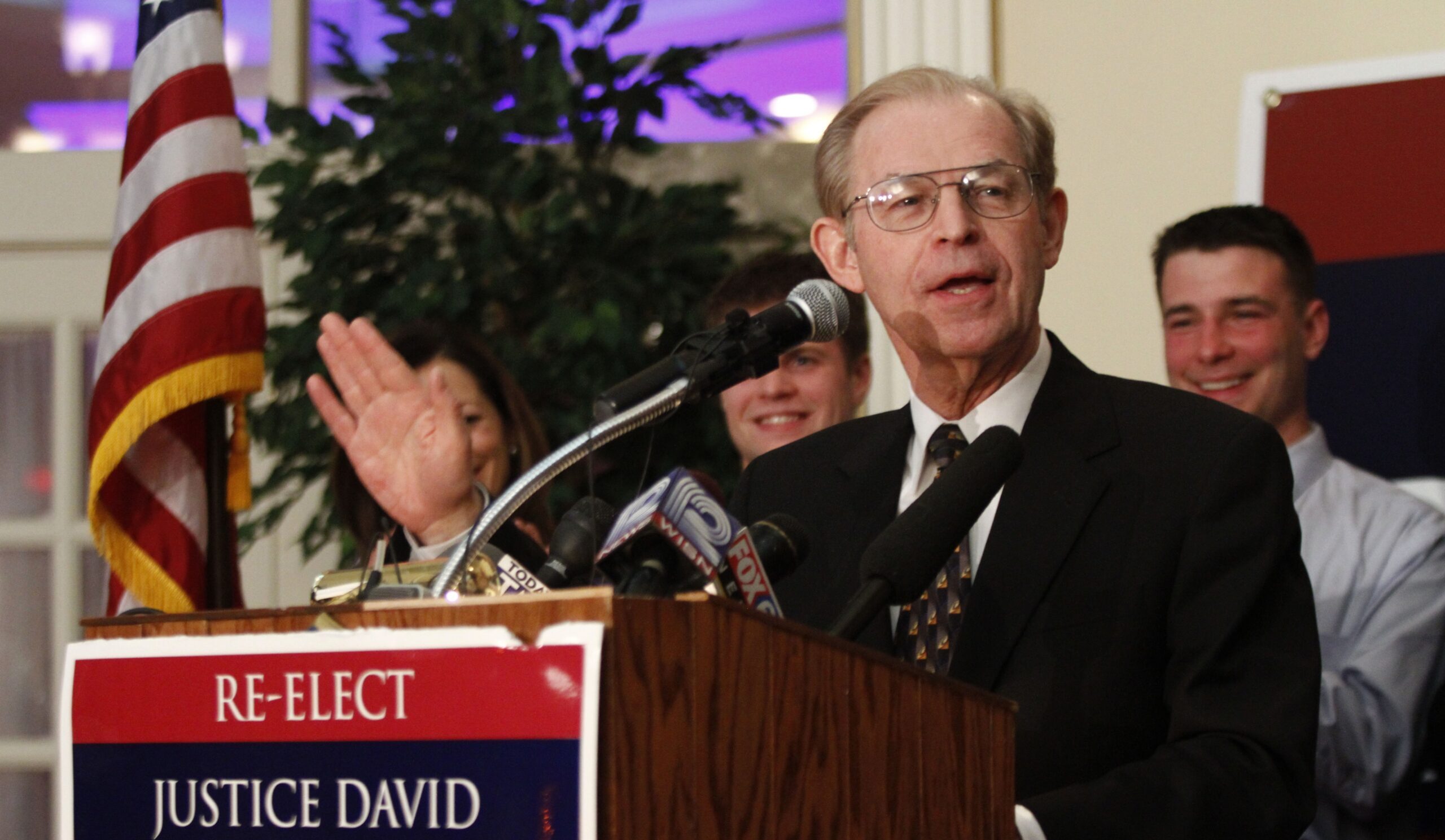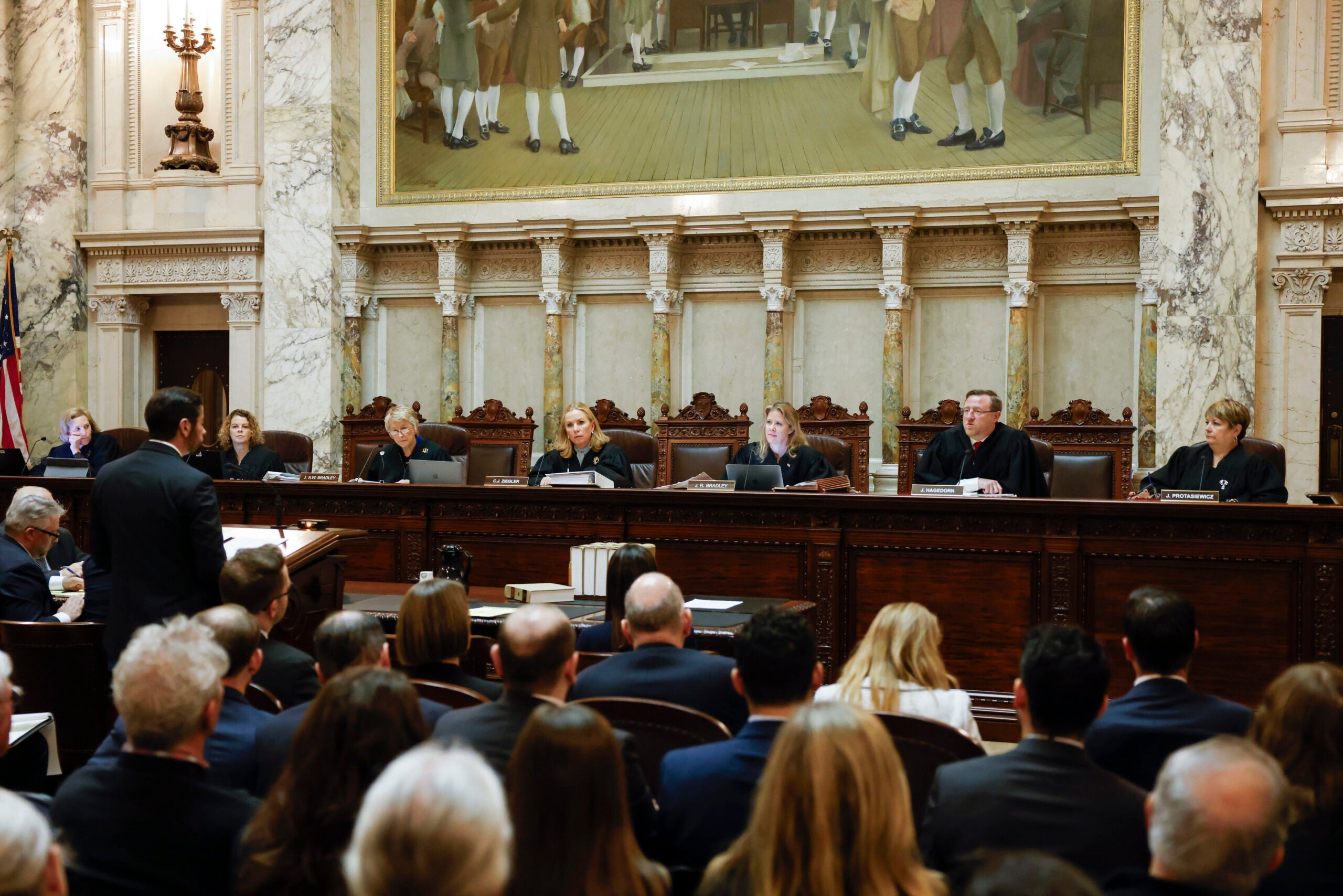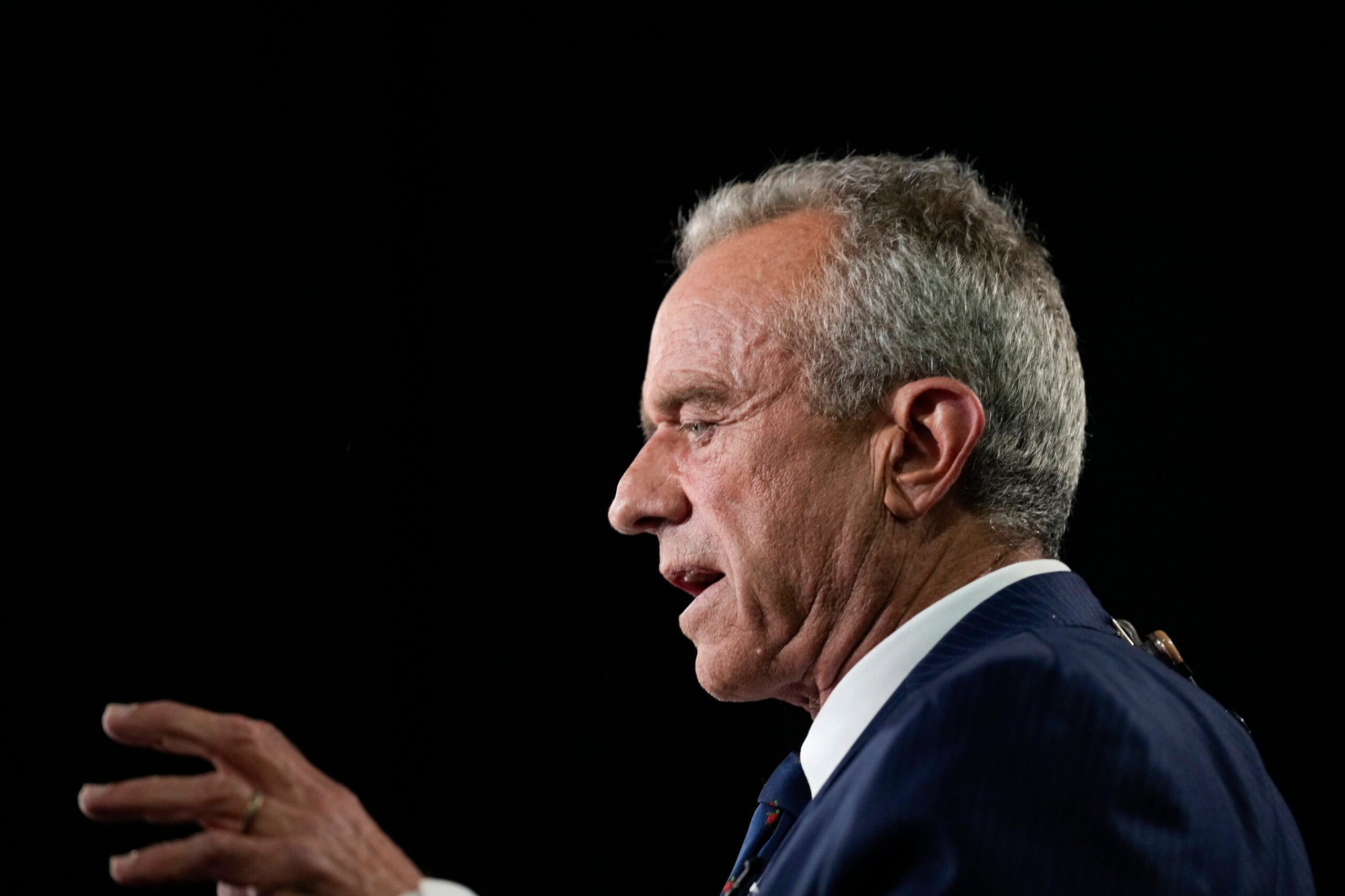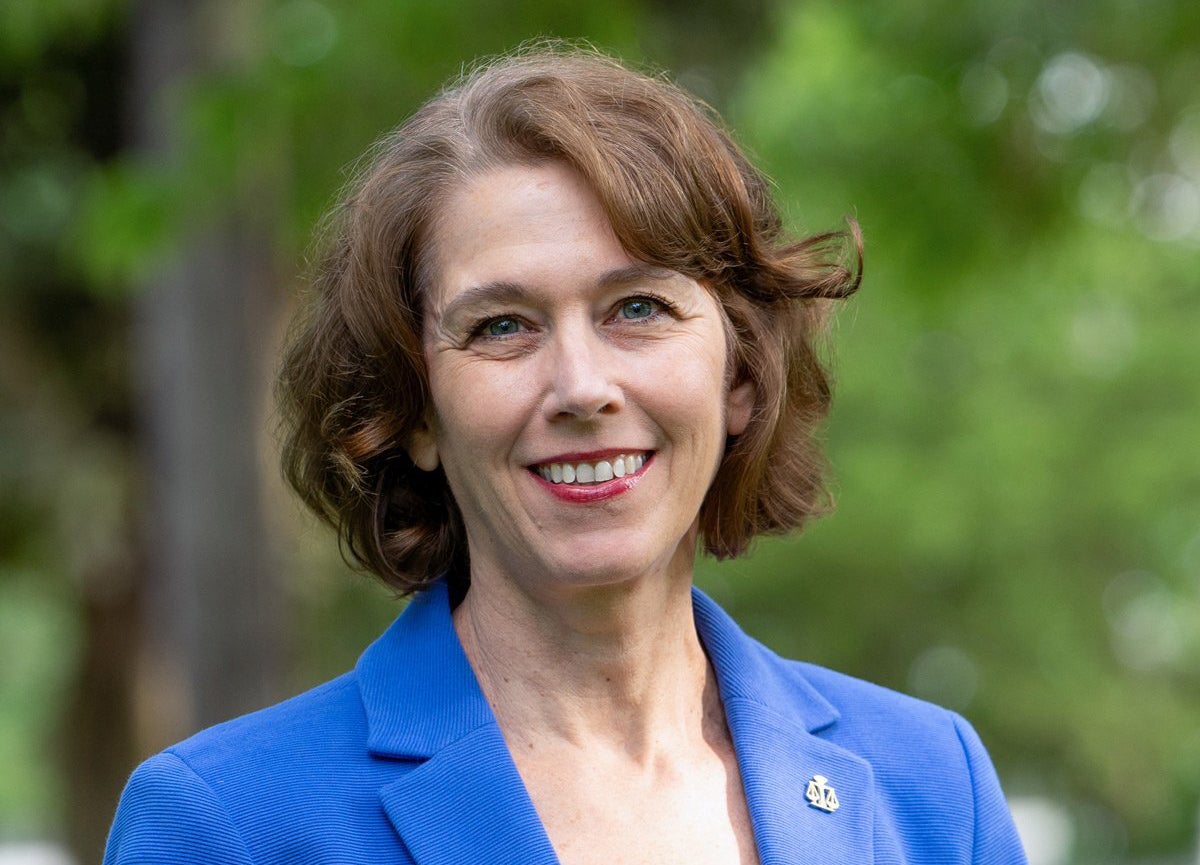The Wisconsin Supreme Court has sided with controversial professor John McAdams in a dispute with Marquette University.
In a 4-2 decision, the court ruled that Marquette violated McAdams’ right to academic freedom when it suspended him for writing a blog post criticizing a graduate student and philosophy instructor in 2014.
The student instructor, Cheryl Abbate, had told her class that because everybody agrees with gay rights, there was no reason to discuss it. When a student who disagreed confronted her after class, she told him he would not be allowed to make homophobic remarks in her class.
Stay informed on the latest news
Sign up for WPR’s email newsletter.
The student recorded the conversation and shared the audio with McAdams, who quoted from it on his blog. He also linked to Abbate’s personal website, which included her contact information, and she began receiving threatening emails. Abbate has since left the university.
Marquette contended that McAdams’ conduct was unprofessional because it “painted a target” on the back of a graduate student, putting her in danger.
But in a majority opinion authored by Justice Daniel Kelly, the court rejected that argument.
“The undisputed facts show that the University breached its contract with Dr. McAdams when it suspended him for engaging in activity protected by the contract’s guarantee of academic freedom,” Kelly wrote.
Justice Rebecca Grassl Bradley agreed with Kelly but wrote a separate concurring opinion where she stressed the importance of academic freedom, saying it was being increasingly undermined on college campuses.
“Academic freedom means nothing if faculty is forced to self-censor in fear of offending the unforeseen and ever-evolving sensitivities of adversaries demanding retribution,” Grassl Bradley wrote.
The court ordered McAdams to be reinstated immediately with back pay.
Four of the court’s conservatives joined the majority opinion. The court’s fifth conservative, Justice Annette Ziegler, did not participate.
The court’s two liberal justices dissented, with Justice Ann Walsh Bradley writing that the majority had failed to recognize the academic freedom of Marquette as a private, Catholic, Jesuit university.
“As a result, it dilutes a private educational institution’s autonomy to make its own academic decisions in fulfillment of its unique mission,” Bradley wrote.
Attorney Ralph Weber, who represented Marquette University, said the Supreme Court’s ruling had disregarded the rights of a private college to make decisions that uphold its values.
“Private institutions need to have the ability to protect and enforce their mission-critical values,” Weber said. “As a Catholic, Jesuit university, Marquette’s core values do not include professors cyber-bullying students.”
Weber said Marquette would not contest the court’s order to reinstate McAdams.
Wisconsin Institute for Law and Liberty President Rick Esenberg, who represented McAdams, said the ruling was a vindication for McAdams and a victory for academic freedom, sending a message to faculty that they won’t be fired for expressing their thoughts.
“The best way to advance knowledge and advance understanding is to allow people to express themselves,” Esenberg said. “To know that their free to say something that’s unpopular, that an administration might not like and that just as importantly that their colleagues might not like.”
Esenberg said the university’s claims that McAdams had endangered the graduate instructor were overblown.
“If criticizing somebody amounts to ‘painting a target’ on their back … then none of us are free to say anything,” Esenberg said.
But Justice Ann Walsh Bradley’s dissent noted that it wasn’t just what McAdams had written in his blog that drew attention to Abbate, but his decision criticize her by name in television and radio interviews. Walsh Bradley noted that McAdams himself had written that when someone does something that gets national publicity, “some jerks are going to say nasty things.”
“That prophecy was fulfilled here,” Bradley wrote.
Wisconsin Public Radio, © Copyright 2024, Board of Regents of the University of Wisconsin System and Wisconsin Educational Communications Board.

